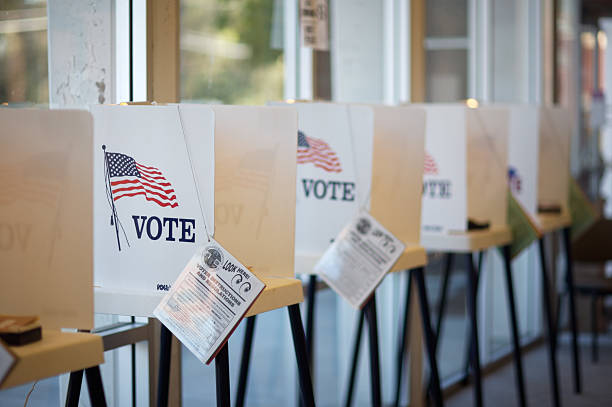Voters across the country served up a mixed bag of results on fiscal policy issues in early election results.
In Arizona, Proposition 208, which nearly doubles the state income tax rate, held a slight edge on Wednesday.
Proponents of the tax increase, which was endorsed by Sen. Bernie Sanders, I-Vermont, led opponents by more than 135,000 votes.
In Colorado, voters there adopted Proposition 116, which reduces the state income tax rate from 4.63 percent to 4.55.
If the results hold, Arizona will have the highest income tax rate in the four-corner region at 8% and Colorado will have the most competitive rate. Arizona’s income tax rate will also be among the highest nationally.
“There are hundreds of thousands of ballots left to be counted, so it’s premature to make any definitive declarations about the results,” Arizona Chamber of Commerce & Industry President and CEO Glenn Hamer said. “If the result holds, however, Arizona will have some of the highest income tax rates in the country, and states with high income tax rates typically struggle economically, so attracting jobs here will become more difficult. Regardless of what happens, we’ll continue to work to support policies that keep the economy healthy so teachers can be paid fairly and so we can attract more Arizonans to the teaching field.”
Illinois voters rejected a tax increase that would have replaced the state’s flat income tax rate with a progressive tax system. Had the measure passed, a new tax bracket of 7.85% would apply to single-filer income above $350,000 and below $750,000, and couples’ income above $500,000 to $1 million annually.
The Illinois amendment would also institute a new 7.99% rate that would apply to all taxable income for single filers who earn more than $750,000 and joint filers who earn more than $1 million annually.
Voters in California, a high-tax state with a top income tax rate of more than 13%, the nation’s highest, appear to have rejected Proposition 15, albeit narrowly based on early returns.
The measure would have established a so-called “split-roll” property tax system that would have made it easier to raise property taxes on business property.
In Florida, a state won by President Donald Trump, voters elected to phase-in a minimum wage increase. The mandated hourly wage will increase annually beginning next year until it reaches $15 per hour in 2026.
Florida voters also rejected a measure that would have required constitutional amendments to be approved by voters in two consecutive general elections.
Florida already requires ballot measures to reach a 60% vote threshold in order to pass.
On the issue of worker mobility, California voters elected to overturn a law that made it more difficult for workers to become independent contractors for technology platforms like Uber and Lyft.
















Add comment